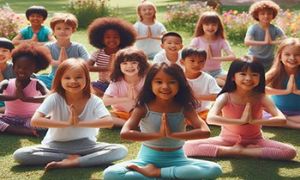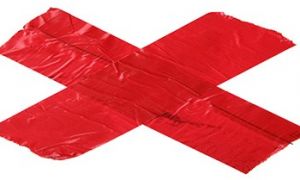

EYLF Learning Outcome 5 focuses on effective communication, helping children develop verbal and non-verbal skills to express themselves confidently. The following article provides information on Key Learning Goals, Strategies To Support Learning Goals, Activities That Link To EYLF Learning Outcome 5, Lesson Plan Sample For EYLF Outcome 5, and more.
Outcome 4: Children Are Confident And Involved Learners in the Early Years Learning Framework (EYLF) focuses on fostering children's curiosity, creativity, and inquiry. The following article provides information on Key Learning Goals, Strategies To Support Learning Goals, Activities That Link To EYLF Learning Outcome 4, Lesson Plan Sample For EYLF Outcome 4, and more.
EYLF Learning Outcome 3 focuses on "Children Have A Strong Sense Of Wellbeing." The following article provides information on Key Learning Goals, Strategies To Support Learning Goals, Activities That Link To EYLF Learning Outcome 3, Lesson Plan Sample For EYLF Outcome 3, and more.
EYLF Learning Outcome 2 focuses on "Children Are Connected With And Contribute To Their World." The following article provides information on Key Learning Goals, Strategies To Support Learning Goals, Activities That Link To EYLF Learning Outcome 2, Lesson Plan Sample For EYLF Outcome 2 and more.
Learning trajectories in early childhood refer to the developmental pathways that children typically follow as they acquire new skills and knowledge. The following article provides information on What Are Learning Trajectories In Early Childhood, Learning Trajectory Domains, How To Use Learning Trajectories In Early Childhood, Using Learning Trajectories In Play Based Activities, Learning Trajectories And The EYLF and more.
EYLF Learning Outcome 1 - Children Have A Strong Sense Of Identity focuses on children developing a strong sense of identity. The following article provides information on Key Learning Goals, Strategies To Support Learning Goals, Activities That Link To EYLF Learning Outcome 1, Lesson Plan Sample For EYLF Outcome 1 and more.
Writing a learning story is a wonderful way to document and celebrate children’s development and achievements. The following article provides information on a Step By Step Guide To Writing A Learning Story
Creating an Early Years Learning Framework (EYLF) curriculum plan involves several key steps to ensure it aligns with the framework’s principles and supports children’s learning and development. The following article provides a step by step guide on writing the EYLF curriculum plan.
The Early Years Learning Framework (EYLF) planning cycle is a structured process that helps educators plan, document, respond to, and support children’s learning. The following article provides information and examples of each of the 5 stages of the EYLF planning cycle.
Changes to Learning Environments in Belonging, Being and Becoming now include a clearer definition of both indoor and outdoor learning environments, and descriptions of learning environments, for Aboriginal and Torres Strait Islander families these contributions can assist in building an intercultural space, Opportunities for children to learn on Country are recognised.
 Here is the list of the EYLF Learning Outcomes that you can use as a guide or reference for your documentation and planning. The EYLF… Read More
Here is the list of the EYLF Learning Outcomes that you can use as a guide or reference for your documentation and planning. The EYLF… Read More
 The EYLF is a guide which consists of Principles, Practices and 5 main Learning Outcomes along with each of their sub outcomes, based on identity,… Read More
The EYLF is a guide which consists of Principles, Practices and 5 main Learning Outcomes along with each of their sub outcomes, based on identity,… Read More
 This is a guide on How to Write a Learning Story. It provides information on What Is A Learning Story, Writing A Learning Story, Sample… Read More
This is a guide on How to Write a Learning Story. It provides information on What Is A Learning Story, Writing A Learning Story, Sample… Read More
 One of the most important types of documentation methods that educators needs to be familiar with are “observations”. Observations are crucial for all early childhood… Read More
One of the most important types of documentation methods that educators needs to be familiar with are “observations”. Observations are crucial for all early childhood… Read More
 To support children achieve learning outcomes from the EYLF Framework, the following list gives educators examples of how to promote children's learning in each individual… Read More
To support children achieve learning outcomes from the EYLF Framework, the following list gives educators examples of how to promote children's learning in each individual… Read More
 Reflective practice is learning from everyday situations and issues and concerns that arise which form part of our daily routine while working in an early… Read More
Reflective practice is learning from everyday situations and issues and concerns that arise which form part of our daily routine while working in an early… Read More
 Within Australia, Programming and Planning is reflected and supported by the Early Years Learning Framework. Educators within early childhood settings, use the EYLF to guide… Read More
Within Australia, Programming and Planning is reflected and supported by the Early Years Learning Framework. Educators within early childhood settings, use the EYLF to guide… Read More
 When observing children, it's important that we use a range of different observation methods from running records, learning stories to photographs and work samples. Using… Read More
When observing children, it's important that we use a range of different observation methods from running records, learning stories to photographs and work samples. Using… Read More
 This is a guide for educators on what to observe under each sub learning outcome from the EYLF Framework, when a child is engaged in… Read More
This is a guide for educators on what to observe under each sub learning outcome from the EYLF Framework, when a child is engaged in… Read More
 The Early Years Learning Framework describes the curriculum as “all the interactions, experiences, activities, routines and events, planned and unplanned, that occur in an environment… Read More
The Early Years Learning Framework describes the curriculum as “all the interactions, experiences, activities, routines and events, planned and unplanned, that occur in an environment… Read More

On the 14th of February, it is Valentine's Day. It's a day when lovers, relatives and...
See more...
EYLF Outcome 3: Children Have a Strong Sense of Wellbeing focuses on fostering children's physical...
See more...
In homes and centres across the country, early childhood educators once viewed documentation as a...
See more...© 2009-2025 Aussie Childcare Network Pty Ltd. All Rights Reserved.
